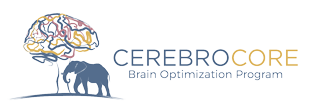WHAT HAPPENS WHEN YOU SLEEP?
While you snooze, your brain cycles through different phases of sleep, including light sleep, deep sleep, and rapid eye movement (REM) sleep, when dreaming often occurs. The cycles repeat about every 90 minutes.
The non-REM stages of sleep seem to prime the brain for good learning the next day. If you haven’t slept, your ability to learn new things could drop by up to 40%. “You can’t pull an all-nighter and still learn effectively,” Walker says. Lack of sleep affects a part of the brain called the hippocampus, which is key for making new memories.
You accumulate many memories, moment by moment, while you’re awake. Most will be forgotten during the day. “When we first form memories, they’re in a very raw and fragile form,” says sleep expert Dr. Robert Stickgold of Harvard Medical School.
But when you doze off, “sleep seems to be a privileged time when the brain goes back through recent memories and decides both what to keep and what not to keep,” Stickgold explains. “During a night of sleep, some memories are strengthened.”
Research has shown that memories of certain procedures, like playing a melody on a piano, can actually improve while you sleep.
Memories seem to become more stable in the brain during the deep stages of sleep. After that, REM—the most active stage of sleep—seems to play a role in linking together related memories, sometimes in unexpected ways. That’s why a full night of sleep may help with problem-solving. REM sleep also helps you process emotional memories, which can reduce the intensity of emotions.
It’s well known that sleep patterns tend to change as we age. Unfortunately, the deep memory-strengthening stages of sleep start to decline in our late 30s. A study by Walker and colleagues found that adults older than 60 had a 70% loss of deep sleep compared to young adults ages 18 to 25. Older adults had a harder time remembering things the next day, and memory impairment was linked to reductions in deep sleep.
